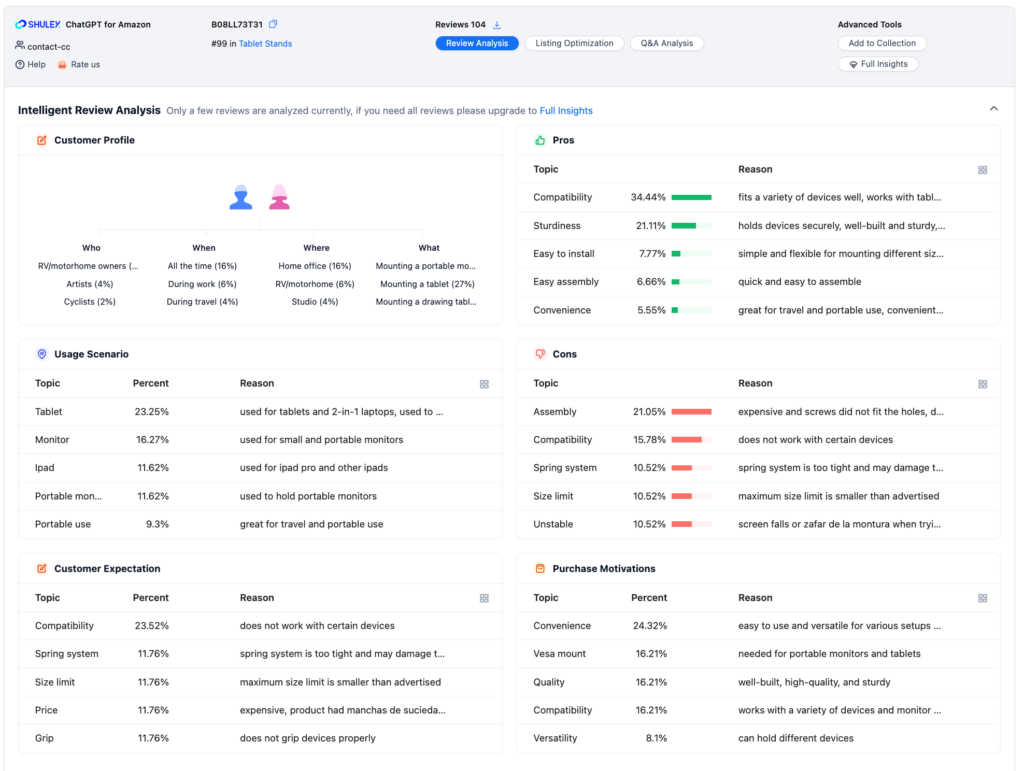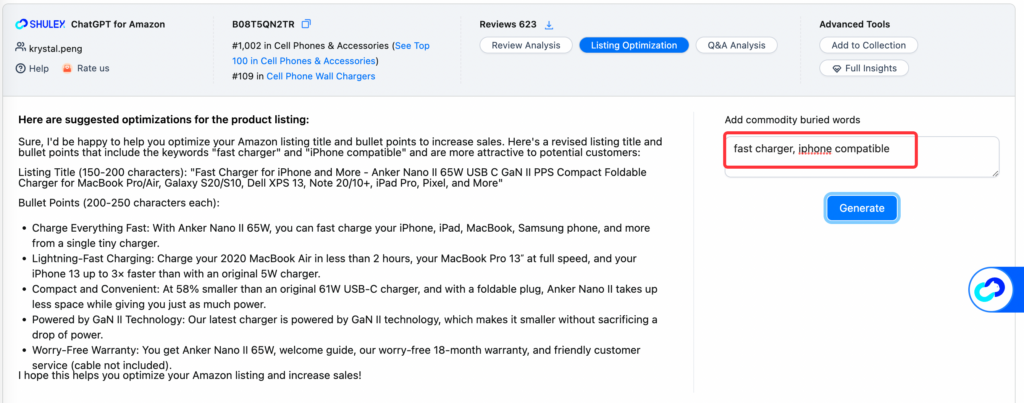What is a word cloud and AI word cloud generator?
A word cloud is a visual representation of text data, where words are arranged in a way that their frequency and importance can be easily understood at a glance. The larger the word appears in the cloud, the more frequently it appears in the text data. Word clouds are useful for summarizing large amounts of text data and identifying key themes or topics.
AI word cloud generator, on the other hand, is an application that uses artificial intelligence (AI) algorithms to automatically generate word clouds from text data. With AI word cloud generator, users can input large amounts of text data, and the application will analyze the data to create a visually-appealing and informative word cloud.
There are several advantages to using AI word cloud generator over manually creating them. Firstly, AI algorithms can quickly and accurately analyze large data sets, saving time and effort. Secondly, the algorithms can identify key themes and topics that may not be immediately apparent to the human eye. Lastly, the generated word clouds can be easily customized with different fonts, colors, and sizes to match the user's needs.
AI word cloud generator have a number of applications, including market research, customer feedback analysis, sentiment analysis, and social media analysis. For example, a company can use an AI word cloud generator to analyze customer feedback from multiple sources, such as online reviews and social media, to identify common themes and areas for improvement.
How AI word cloud help your amazon customer analysis
- Step 1: Choose the best representation for the analysis
Common forms of expression are word clouds, word map, word art, and word bubble. Their difference is as follows:
- Word cloud: A word cloud is a visual representation of words that appear most frequently in a given text or set of texts. The size of each word is proportional to its frequency in the text, and the words are usually laid out in a random arrangement.
- Word map: A word map is a type of visual representation that shows the relationship between words. Words are grouped together based on similarities or relationships, and the size of each word represents its importance or frequency.
- Word art: Word art is a form of typography where a group of words is arranged in a visually appealing way to form an image or design.
- Word bubble: A word bubble, or tag cloud, is a type of word cloud that displays the most frequently used words in a text in a cluster or bubble. The most frequently used words are usually displayed in larger font size, with less frequently used words appearing smaller.
- Step 2: Collect data and tagging by AI tool
One of the most useful AI tools for collecting and tagging Amazon data is a machine learning algorithm. This algorithm can analyze vast amounts of data quickly, helping businesses discover insights and trends that they might miss otherwise. By using machine learning algorithms, businesses can collect data on product reviews, sales, and search results on Amazon, among other metrics. The artificial intelligence and machine learning algorithms can analyze this data and identify patterns that humans might not notice, allowing businesses to adjust their strategies accordingly.
- Step 3: Analysis Data
- Identify Key Themes: By analyzing the language used in customer feedback, word clouds can help you quickly identify the key themes that are emerging. For example, if you are selling clothing on Amazon, you might find that words like "fit," "comfort," and "style" are frequently used. By drilling down into these themes, you can gain a better understanding of what your customers care about most and tailor your product offerings accordingly.
- Track Customer Sentiment: In addition to identifying key themes, word clouds can also help you track customer sentiment. By focusing on the adjectives and adverbs used in your customer feedback, word clouds can help you quickly see whether your customers are generally positive or negative about your products or services. This information can help you develop strategies to improve customer satisfaction.
- Compare Feedback Across Products: If you are selling multiple products on Amazon, you can use word clouds to compare customer feedback across those products. By visualizing the most commonly used words and phrases, you can quickly see whether there are any trends that are specific to one product or another. This information can help you make decisions about product development and marketing.
How to find amazon keywords by ai word cloud generator?
This is where AI word cloud generator tools can help you. By using AI tools, you can easily find the most relevant and popular keywords for your products that will help improve your search rankings and conversion rates. In this blog, we'll discuss how to use an AI word cloud generator to find Amazon keywords for both your product listings and PPC ads.
- Step 1: Choose Your AI Tool
There are many AI tools available that can help you identify popular Amazon keywords. One popular tool is Word Cloud Generator, such as WordClouds.com. This tool uses a cloud of words that visually represents the most frequently used words in reviews, product descriptions, and customer feedback. You can use this tool to analyze the reviews of your products or competitor's products to identify the most popular keywords.
Other AI tools for keyword research include Jungle Scout, MerchantWords, and Helium 10. These tools provide a more detailed analysis of Amazon listings and help you identify the most popular and profitable search terms for your products.
- Step 2: Extract Keywords from Amazon Listings
Once you have selected your AI tool, the next step is to extract the keywords from your Amazon listings. To do this, enter the product title, description, features, and other relevant information into the tool's search box. The AI tool will then analyze the data and generate a word cloud that highlights the most frequently used words in your listing.
For example, suppose you have a product listed on Amazon that is a "Waterproof Bluetooth Speaker." You can enter this product into the tool, and the AI tool will generate a keyword cloud that highlights the most frequently used words in the product title, description, and features. You can then analyze the cloud and select the most relevant and popular keywords for optimizing your Amazon listing.
- Step 3: Analyze Competitor Listings
In addition to analyzing your own Amazon listings, you can also analyze competitor listings to identify popular keywords. To do this, enter the competitor's product title, description, and features into the AI tool. The tool will then generate a word cloud highlighting the most frequently used words in the competitor's listing.
You can use the cloud to identify keywords that competitors are using that you may not have thought of. By adding these keywords to your Amazon product listing, you can improve your ranking and visibility for those keywords.
- Step 4: Use Keywords in PPC Ads
Finally, you can use the keywords identified by your AI tool to create effective PPC ads. Use the most relevant and popular keywords in your ad copy and target your ads to buyers searching for those keywords.
10 best ai word cloud generator for amazon
- WordClouds.com: This is a user-friendly online word cloud generator that allows you to upload your text data and customize the design and layout of your word cloud. It also offers advanced features like sentiment analysis and part-of-speech tagging.
- TagCrowd: This tool is free and easy to use, providing a variety of customization options for your word cloud, such as word frequency, font size, and color schemes. It can also generate word clouds from URLs and uploaded files.
- Wortwolke: Based in Germany, this AI-powered word cloud generator allows you to analyze German texts and offers various customization options, including word weighting, background colors, and font types.
- WordArt: This is a well-known word cloud tool that offers customization options for font, color, and shape. It also offers limited AI features like part-of-speech tagging.
- Word Cloud Generator: This is an open-source tool that allows you to create word clouds from a wide range of text data and customization options. It also includes options to remove stop words and use different algorithms to create your word cloud.
- Shulex word cloud: This is a free and using GPT technology to help you analysis amazon listing text, amazon customer review and feedback for all amazon marketplace and language.
- IBM Watson Studio: This is a cloud-based data analysis and visualization suite that enables you to create word clouds as part of its analytics and NLP features. It requires some programming skills, but it offers a broad range of customization options and part-of-speech tagging.
- Textalyser: This is a comprehensive text analysis tool that generates word clouds and provides deeper insights into text data. It includes advanced features like readability analysis, sentiment analysis, and entity recognition.
- Voyant Tools: This is an online text analysis tool that offers various features such as word clouds, trend analysis, and co-occurrence visualization. It also allows you to upload or input your corpus to perform advanced analysis.
- Infogram: This platform offers cloud-based data visualization tools, including word cloud generators. It allows you to customize your word clouds with a range of fonts, colors, and layouts
Not only wordcloud, AI will help all your amazon business
AI technology is not only word cloud, it can help your amazon business in many ways. Let's take Shulex AI amazon suite as an example to explain how AI can help all amazon business:
- Use AI-Powered Tools for Data Collection and Analysis
One of the most significant advantages of AI is its ability to collect and analyze large amounts of data quickly. This can be particularly useful for Amazon sellers who want to track their sales performance and identify areas for improvement. By using AI-powered tools like Jungle Scout or Helium 10, you can obtain accurate and detailed data on product sales, customer reviews, and other important metrics.

- Try AI-Powered Listing Optimization Tools
Another way to use AI in your Amazon business is by using AI-powered listing optimization tools like Sellics or AMZScout. These tools can identify the most relevant and high-volume keywords for your product listings, suggest changes to your product descriptions, and help you optimize your listings for better search visibility and sales performance.

- Use AI-Powered Chatbots for Customer Service
Finally, AI-powered chatbots can be an excellent resource for providing fast and responsive customer service on Amazon. By using chatbots like ManyChat or Tars, you can automate customer service tasks like answering common questions, providing order updates, and handling returns and refunds. This can help improve customer satisfaction and reduce the workload for your customer service team.
4. Use AI Copilot direct find amaozn Operation Answer
ChatGPT is currently the hottest topic if you also want to use ChatGPT to help amazon business. the most important thing is to learn to prompt, just good questions and training to produce good results. If you know nothing, you can try our free ChatGPT copilot plugin. Not only is it a free ChatGPT tool, but it also has three built-in Amazon personas and prompts to choose from to use.







